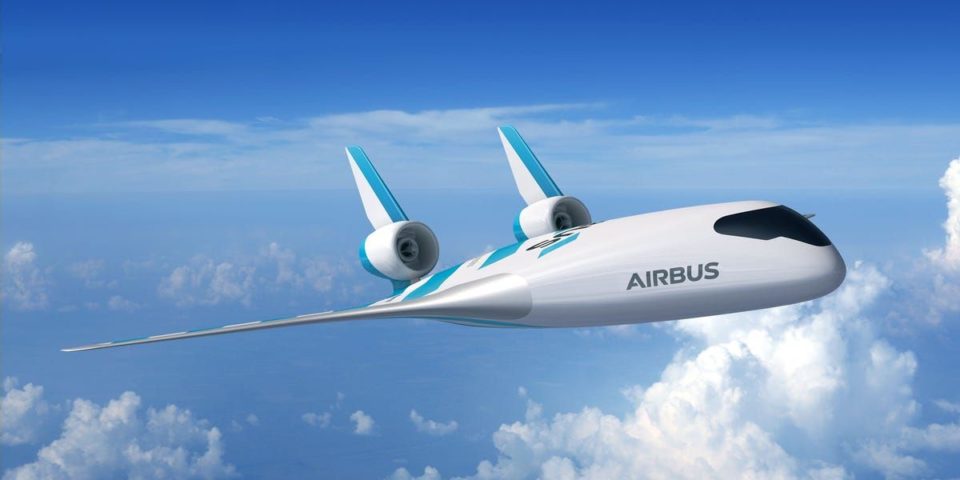In a race to incorporate a zero-emission passenger plane in operation by 2035, Airbus SE of Europe revealed three designs undergoing study for constructing a hydrogen-powered aircraft.
Techniques comprise of a turbofan jet accommodating 200 passengers, similar to A321neo narrow-body – flying over 2,000 nautical miles, based on a Monday statement. It would be powered by a modified gas-turbine engine running on hydrogen. The manufacturer further displayed the propeller plane design seating nearly 100 passengers for smaller distances and a flying-wing concept with 200 seats.
Earlier information by Airbus revealed the mid-2030s intended for launching the first emission-free commercial jet. It’s under pressure from the French and German governments, its most significant shareholders, in finding environmental solutions after they pledged support for the planemaker and significant airlines to revive from the standstill due to COVID-19. Airbus added that among numerous approaches, hydrogen is probable for utilization in aerospace and different industries to achieve climate-neutral targets.
“I strongly believe that the use of hydrogen — both in synthetic fuels and as a primary power source for commercial aircraft — has the potential to reduce aviation’s climate impact significantly,” Chief Executive Officer Guillaume Faury said in the statement.
The three designs are planned for testing in the following five years. Turbofan will comprise of liquid hydrogen in storage and distribution through tanks located behind the rear pressure bulkhead. The turboprop will also use modified gas-turbine engines. The blended-wing plan, resembling a flying V, opens up new options for hydrogen storage and distribution, including cabin layout.
An estimated two years is predicted to decide supply and manufacture sites before arranging the program around 2028, with aircraft service in 2035. Airbus said that airport infrastructure and government support in funding development, alongside airline incentives in the retirement of older aircraft factor for the success of any such plane.





